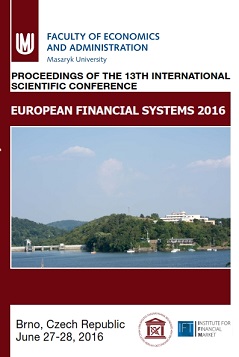Fiscal Federalism and Redistributive Politics for Income Tax: Case of Russia’s Regions
Fiscal Federalism and Redistributive Politics for Income Tax: Case of Russia’s Regions
Author(s): Nadezhda Yashina, Maria Ginzburg, Louisa Chesnokova
Subject(s): National Economy, Governance, Economic policy, Public Finances, Fiscal Politics / Budgeting
Published by: Masarykova univerzita nakladatelství
Keywords: fiscal federalism; income tax; tax revenues; coefficient of variation; weights;
Summary/Abstract: The budget system of the country with a federal form of government requires special attention to the allocation of tax revenues between levels of budgets in order to comply with the budgetary principles and to maintain capacities of the regions. Currently in Russian Federation taxes are allocated on the basis of the regulatory criteria. The authors of the study suggested that the use of the theory of weights for determining the amounts of taxes to the distribution in the Federal and regional budgets will increase the sustainability of each part of the budget system. Based on the results of current researches, the authors have developed a scorecard on the allocation of corporate income tax and personal income tax, and suggested an algorithm for derivation of tax revenues. While conducting this research, the authors were using data of economic indicators dynamics for years from 2008 to 2014 for 83 regions of Russian Federation. Regions were divided into groups according to the size of planned tax revenue. The algorithm of distribution allowed to differentiate income taxes between the regional and the federal budgets of Russian regions, taking into account the socio-economic characteristics of the territories. Application of algorithm developed by the authors, could give a solution to the following tasks facing regional budgets: expand the tax base, increase the territorial taxes collectability, raise the level of own income for regions, increase the capacity of regional budgets, related to the financing of expenditure commitments; reduce the dependency of regional budgets from federal budget transfers; improve the quality of life of the population in the regions of Russian Federation.
Book: European Financial systems 2016. Proceedings of the 13th International Scientific Conference
- Page Range: 872-880
- Page Count: 9
- Publication Year: 2016
- Language: English
- Content File-PDF

